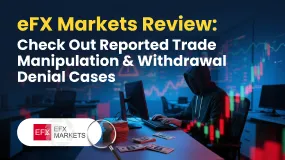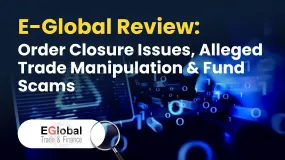Abstract:According to WikIFX, retail CFD/Forex Trader numbers and volumes remain at record levels with over of 8.5 million traders (excluding Japan) being active in the market as continued volatility and hedging requirements create demand for OTC derivative products.
Retail CFD/Forex Trader numbers and volumes remain at record levels with over of 8.5 million traders (excluding Japan) being active in the market as continued volatility and hedging requirements create demand for OTC derivative products.
About CFD/Forex Trading
Retail CFD products are typically offered through online trading platforms. They include Contracts for Difference (CFDs), spread bets (UK only) and spot FX contracts. CFDs are derivatives that allow retail investors to gain indirect exposure to price movements in an underlying index, stock, commodity or FX pair (including cryptocurrencies where permitted by law). Retail CFD products are traded on an over-the-counter (OTC) basis, opposed to on-exchange, with leverage often used to increase the notional value of the position. Brokers often take the other side of the transaction under a market maker business model and act as the sole principal to a trade whilst providing the markets, platform and prices to the trader. Almost all CFD/Forex brokers are execution only with their service restricted to the execution of trades via an online platform and without the client receiving any advice about the merits of their investment.
Regulatory considerations
Global regulators are increasingly restricting the sale, distribution and marketing of CFD products to retail investors with authorisation often required to onboard local clients. Leverage restrictions, mandatory risk disclosures and negative balance protection are becoming increasingly prevalent as regulators look to enhance consumer protection and mitigate potential risks in trading CFDs and related products. Many emerging markets remain unregulated with no specific legislation governing the sale, distribution and marketing of CFD products despite a large local market existing.
Key onshore CFD/Forex regulators globally 2022
The key global onshore CFD/Forex regulators are as follows:
Both the CFTC in the U.S. and SFC in Hong Kong regulate retail Forex, however, retail CFDs are not permitted in either jurisdiction.
Key offshore CFD/Forex regulators globally 2022
The key global offshore CFD/Forex regulators are as follows:
• Bahamas: SCB
• Cayman Islands: CIMA
• Bermuda: BMA
• Vanuatu: VFSC
• British Virgin Islands: VFSC
• Labuan: FSA
• Seychelles: FSA
• Mauritius: FSC
Key traditional CFD/Forex markets for 2022
• UK: Over 200,000 high value retail CFD/Forex traders including spread betters (cryptocurrency CFDs are not permitted in the UK)
• Australia: Over 70,000 high value retail CFD/Forex traders
• Singapore: Over 40,000 high value retail CFD/Forex traders
Key emerging CFD/Forex markets for 2022
• Thailand: Over 150,000 medium value retail CFD/Forex traders
• Vietnam: Over 100,000 medium value retail CFD/Forex traders
• Nigeria: Over 200,000 low value retail CFD/Forex traders
Key considerations when choosing a CFD/Forex broker
When selecting a CFD/Forex broker retail traders should consider where the broker is regulated, which broker entity they will be trading under, transparency of the broker‘s ownership structure and the platform’s deposit/withdrawal mechanism.







